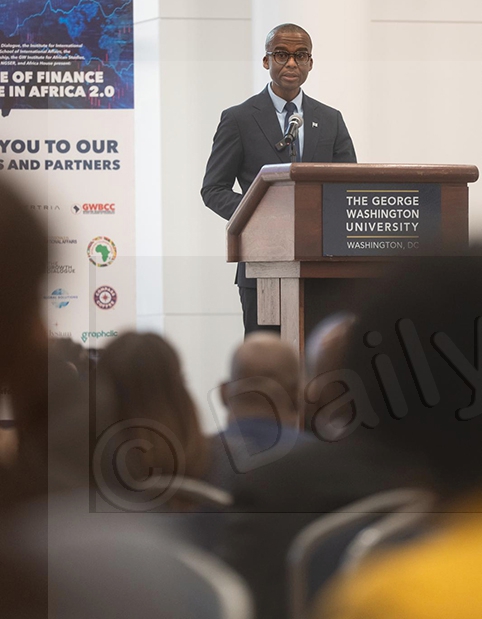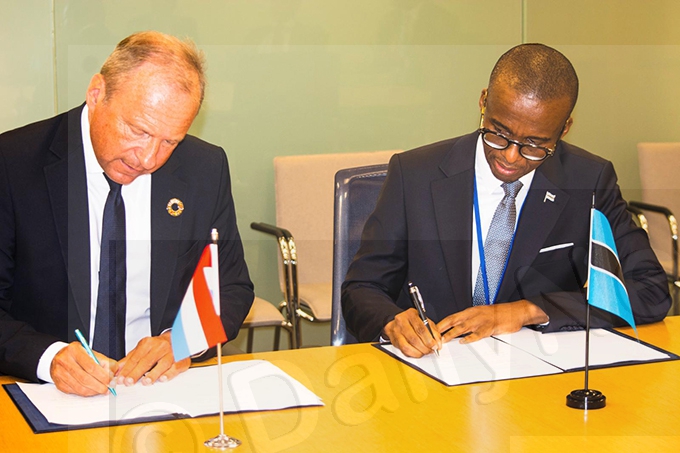BBC World Questions in Gaborone
18 Sep 2019
As the country is in the midst of election preparations, Botswana’s mainstay commodities became central topics at the BBC’s flagship World Service monthly debate programme, World Questions in Gaborone on Tuesday.
The BBC’s Toyosi Ogunseye was joined by a panel of politicians namely Botswana Democratic Party’s, Ms Dorcas Makgato and deputy leader of Umbrella for Democratic Change, Mr Dumelang Saleshando as well as business woman and former president of Women in Business, Ms Tumi Mbaakanyi, Deputy Editor of The Sunday Standard and chairperson of Editors’ Forum, Mr Spencer Mogapi.
When quizzed on their views on the current government and DeBeers diamond negotiations, considering that diamonds are the biggest contributor to Botswana’s economy, Ms Makgato, who was the first to answer, said the structure of the economy had for many years relied solely on diamonds.
She said in the upcoming DeBeers-Botswana agreement, government would take into consideration the value of the commodity to Batswana.
“We cannot take it for granted that those who we negotiate with understand.
It is incumbent upon government to negotiate from a position of knowledge, strength and be aggressive to ensure that we get the best value for our diamonds,” she stated.
She said the relocation of the diamond centre from London was because by value, Botswana produces the best, hence it should get the largest share. She said government continued to bring to the table issues of value chain and beneficiation in the diamond industry to ensure Batswana benefit.
Mr Saleshando concurred that diamonds had been a critical factor for Botswana’s development as witnessed by impressive economic record and prudent management of the resource.
However, he was of the view that government was not in a position to share the contents of the agreement, which he said was a disturbing move. He said the negotiations between Botswana and DeBeers was secretive, as such Batswana did not know if they were getting a fair deal.
“How can we know we are getting a fair deal when there is no competitive bidding for a proper partnership? Do we have strong men and women at the table - I submit NO!” He said.
He said in the Debswana board, government was represented by civil servants, while on the DeBeers side, there were experts who work, breathe and sleep diamonds daily, adding that the negotiations were thus skewed.
He further said that over 75 per cent of good paying jobs were exported to foreign countries, while Batswana only remain diggers, .
Ms Mbaakanyi called for private sector involvement in the current negotiations.
She was of the view that immediate communities where diamonds are mined should be empowered.
“There is a whole lot that can be done,” she said, adding that the diamond industry was critical for private sector development.
Mr Mogapi said what stood out on the previous negotiations was that the Botswana government negotiating team was no match for DeBeers.
“Once again, we might be defeated in the new deal.
We should thus not celebrate the fact that the shareholding is equal.
That is not the story,” he said.
He said the importance of diamonds to Botswana should allow for government to diversify the economy and to create jobs outside the diamond industry, adding that the country had totally failed on that aspect.
Mr Mogapi said diamonds had not been used fully to diversify the economy because there had been lack of goodwill.
On whether they were ready to admit that the lifting of the hunting suspension was more political than for the welfare of Batswana, given the timing of the decision, Mr Saleshando argued that the move to kill elephants would not solve the human/wildlife conflict.
He said a more holistic solution was important, adding that the environment within neighbouring countries was unstable as the animals were killed there, hence they migrate southwards.
In this regard, Mr Saleshando said the solution would not be to kill the elephants, but to go back to the drawing board as the concerned countries, to form a Trans-frontier park to create ample space where elephants could roam freely, so that Botswana does not become their focal point.
He said the government’s decision not to allow farmers to own rifles prevented them from protecting themselves from elephants.
In this regard, he said westerners funded efforts on areas of conservation and as it was now, poaching had increased, hence depleting the little available resources.
For his part, Mr Mogapi said government deserved credit for bringing together Kavango-Zambezi Trans-Frontier Conservation Area countries of Botswana, Zambia, Zimbabwe, Angola and Namibia, to try and find a lasting solution.
He said the fact that the increase in elephants’ population did not happen overnight was a result of good conservation measures by the government, hence they had by far outnumbered the carrying capacity and were straying.
“The solution does not rely on shooting them yes, but it depends on the region opening up to find a lasting solution, including having to export them if they have to, because there might be other places conducive for them,” he said.
Meanwhile, Ms Makgato said many lives were lost due to elephants.
She said government’s efforts to finding a lasting solution was to work with other KAZA countries as the lives and livelihoods of Batswana were under threat. ends
Source : BOPA
Author : Mmoniemang Motsamai
Location : GABORONE
Event : BBC world service debate
Date : 18 Sep 2019







